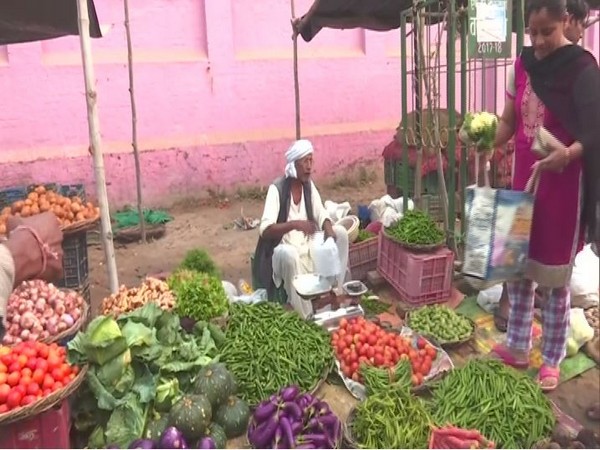Future Food: Veg Meat alternatives at lunch on Wednesday in WEF2020 at Davos
In four days long World Economic Forum (WEF) 2020 at Davos in Switzerland, about 3,000 participants from across the world will be served nutritious plant rich food.

- Country:
- Switzerland
In a unique initiative to promote sustainable diet, the organizers in the World Economic Forum have decided to observe ‘Future Food Wednesday’ by offering tasty and delicious alternatives to meat at lunch on January 22, the second day of the event. The menus of four days WEF2020 have been designed to promote sustainable food habits throughout the world.
“Changing habits towards healthier, more sustainable diets aren’t easy - but it’s possible. On Future Food Wednesday, our aim is to help participants change their habits by offering tasty, delicious alternatives to meat at lunch. We have collaborated with regional suppliers, local chefs, and the Congress Centre kitchen to marry alternative proteins with local and seasonal produce, creating exciting menu choices for everyone,” said WEF explaining the menu of ‘Future Food Wednesday’. The forum has expressed serious concern on the rise of obesity and animal protein consumption in the European population particularly in Davos where the event is being organized on 21-24 January.
“The good news is that we are beginning to see change: agriculture companies are starting to reduce their environmental footprints; plant-based burgers are becoming far more accessible across the US and Europe, and sophisticated technologies help reduce food waste,” added WEF. According to the forum such food besides being healthy rare sustainable for personal wellbeing of individuals as well as for our planet earth.
WEF2020 has designed a three pillar plan to ensure all the participant are offered delicious, nutritious and sustainable diets. In addition, they also aim to make the event a sustainable one.
Fresh, regional and plant rich: Careful selection and sourcing of the ingredients used in the menus is critical to deliver a sustainable Annual Meeting. This is the second year the Forum is working with a Swiss-based start-up specialized in eco-rating food. The start-up works closely with the Congress Centre chef to collect detailed information on every single ingredient used in the kitchen. Software then rates each ingredient, according to its production mode (seasonality, impact on biodiversity), impact on climate and natural resources, origin, and the degree of transformation. Each product gets rated A to G: last year 1063 products or 31,000 kilos of food averaged a C grade. Last year we sourced 4,300 kilos of fresh vegetables and 4,000 kilos of fresh fruit, and we intend to continue moving towards plant-rich, flexitarian-style menus while providing a variety of nutrients to participants.
Future Food Wednesday: On Future Food Wednesday, our aim is to help participants change their habits by offering tasty, delicious alternatives to meat at lunch.
Measuring food waste through AI: With a total of 70,000 meals served in Davos, delivering no or minimal food waste is a significant challenge. For the first time, we will be working with a Swiss-based start-up specialized in automated food waste monitoring. Food waste will be monitored through an artificial intelligence system installed on several bins in the Congress Centre that photographs waste and weighs binned food. AI generates detailed insights on the different types, weight, costs and sources of the food waste. The data is then analyzed to organize food operations and reduce avoidable waste at future events. In choosing ‘what’s for lunch’ and designing sustainability into our menu, we have created a tasty and enjoyable experience, bringing people together while providing nourishment – one of the beauties of food!
Thus the shift to sustainable food would directly effect in advancing two Sustainable Development Goals (SDGs) - SDG 3 for Good Health and Well Being and SDG 13 for Climate Action. Besides, this change in food habbit will have positive impact on almost all the SDGs as a healthy popultion is foundation of achieving SDG2030.
ALSO READ
Global Climate Action: A Pathway to Saving Lives and Reducing Inequality
UN Agencies, India Call to Scale AI for Food & Climate Action
AI and Climate Action: Intersecting Paths for a Sustainable Future
Harnessing AI for Climate Action: India's Groundbreaking Initiatives
TN ranked first in Climate Action category in NITI Aayog SDG India Index 2023-24: TN Finance Minister.










